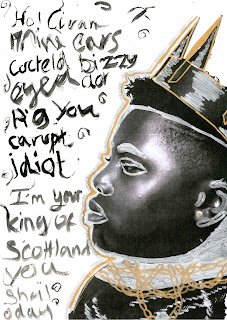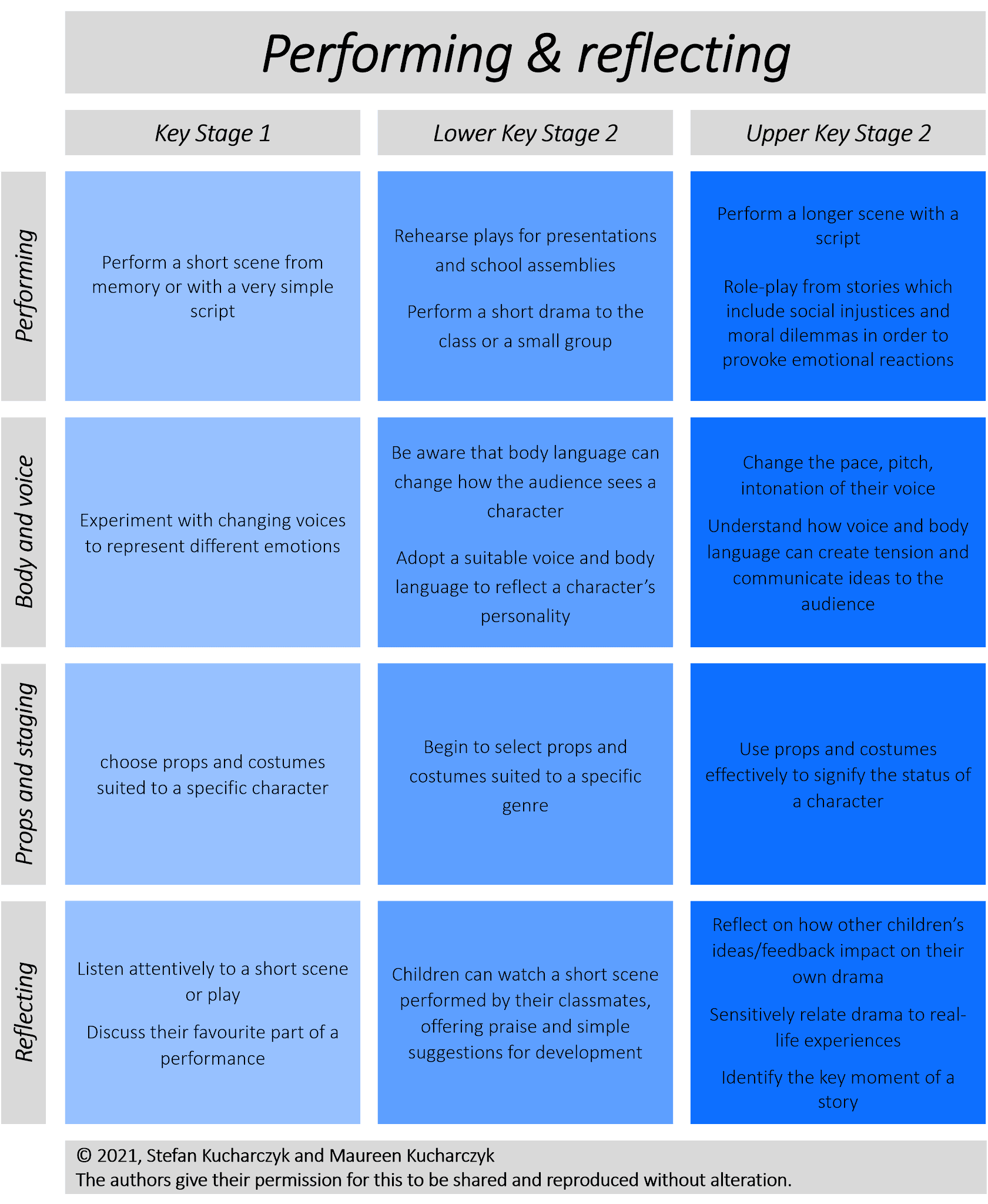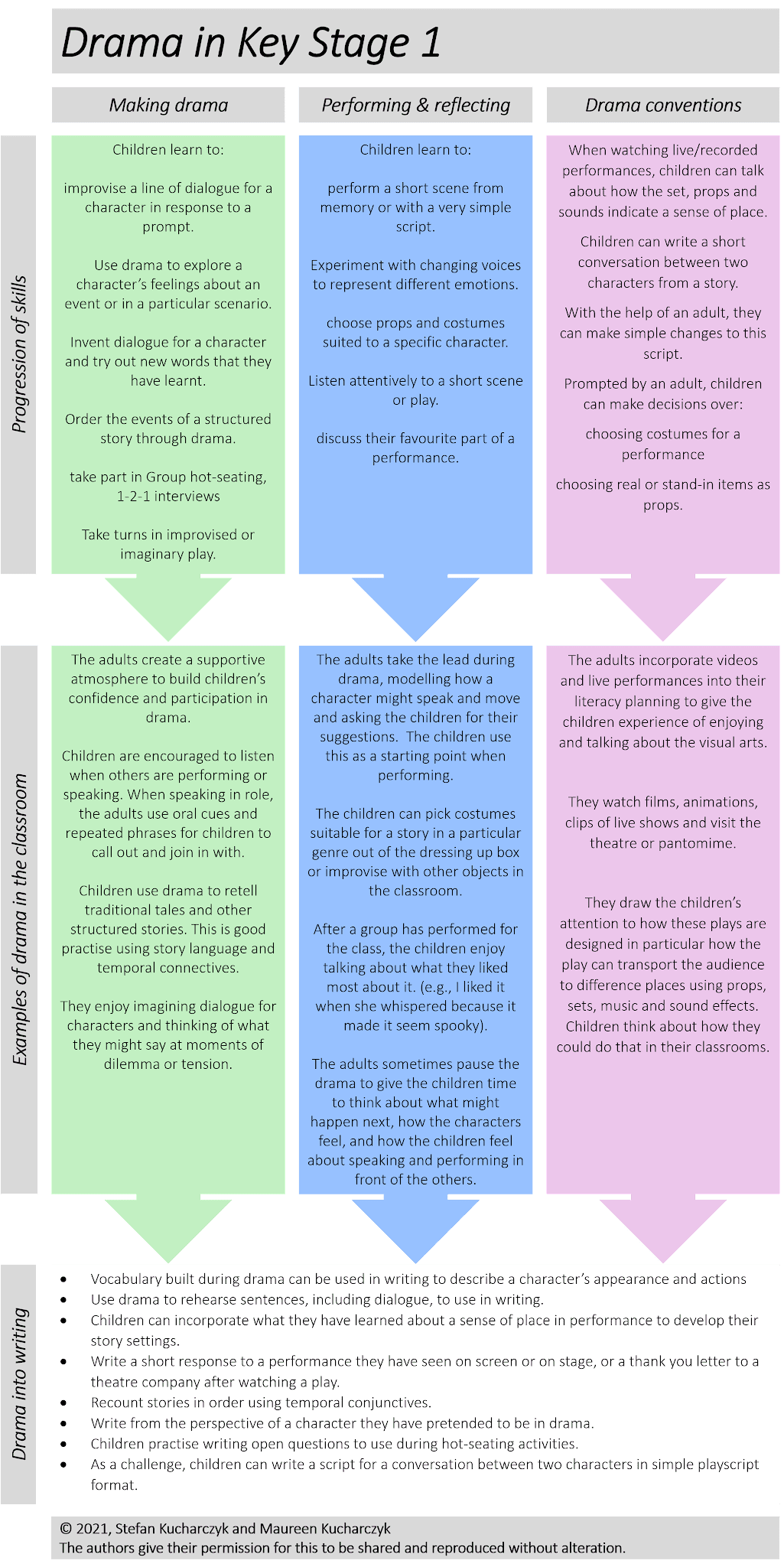When writing our forthcoming book, Teaching Shakespeare in Primary Schools: All the World's a Stage (Routledge, David Fulton, 2021), both Maureen and I felt that whole-school drama guidance for primary teachers - so integral to teaching Shakespeare's plays - was notably lacking from online resources currently available (apologies if you have produced such a document but we could not find it!). We decided to compile our own. In fact, you may have found this blog post from the reference in our book!
Our 'Progressions in Primary Drama' is posted below. It will soon be available as a downloadable pdf from our TES store.
We have designed our progression for the three phases of primary education (KS1, Lower KS2, Upper KS2) around three strands identified in the National Curriculum. These are making drama, performing and reflecting and drama conventions. Each of these strands is again sub-divided into key areas. You will find the progressions below organised by strand and by phase.
As well as highlighting a range of key skills, we also felt it was important to provide examples of what these skills might look like in practice and how they might feed into children's writing. We have called this 'going beyond the National Curriculum' as we felt that our progression covers key areas essential for a 21st Century education that are entirely absent from the current policy. For example, we look at how children might be encouraged to appreciate aethetics, the link between drama and music, staging drama with growing independence and confidence and employing digital technologies such as film, video recording and digital animation. Our guiding principle was that drama should be exploratory, fun and something that emboldens children by allowing them to make meaningful decisions.
We hope you find this useful. If so, please leave us a comment below. Feel free to share this blog online although please do tag us if sharing on Twitter using the handles @ARTiculate_UK and @C21Shakespeare.







